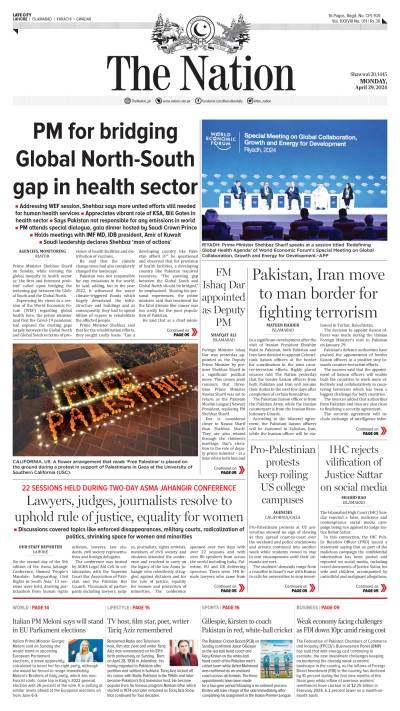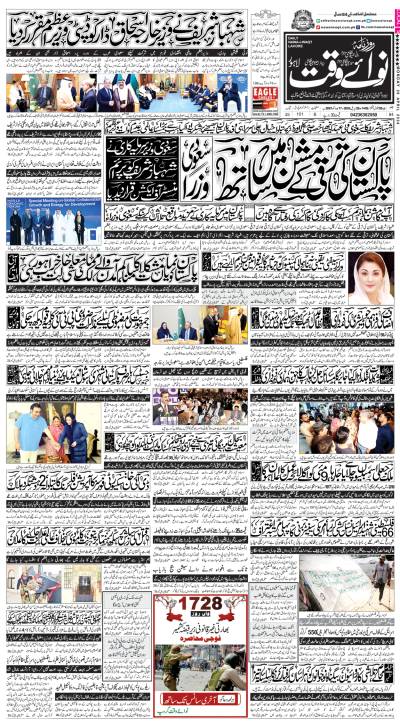As the year 2016 draws to an end, the Pakistani nation suffers another tragic loss. The sad demise of around 47 individuals including pop-singer turned evangelist Junaid Jamshed in an airplane crash at Havelian, has mingled the seasonal wintery breeze enveloping the region with an air of grief and gloom that weighs heavy upon every Pakistanis heart.
While investigations to determine the root cause of the crash are still underway, with some specialists contending that the left engine of the plane caught fire, thereby disturbing the aero-dynamics impelling the plane to crash, and other researchers bringing forth their hypothesis aimed at understanding the national tragedy, the disturbingly exigent reality that this air plane crash alludes towards is the distorted prioritising concerns of the national leadership, when it comes to manifesting real development or even combating existential ills threatening the very stability of the state.
Since more than a decade now, the national flag carrier Pakistan International Airlines has been in the limelight for all the wrong reasons. Be it the case of delayed domestic or international flights, corruption scandals or the tragic air crashes resulting from unaddressed airplane malfunctions, PIA’s condition is despicable to say the least. It not only manifests the harrowing repercussions defining institutions and their performance when mismanaged but also testifies the fact that institutional strength is necessarily contingent upon its inherent operational dynamics and not solely on the individuals governing them.
This is not only true for PIA, where corruption, nepotism and politically motivated appointments have ruined the operational contours of the institution itself, but also for the varied public institutions that are responsible for the smooth running of state affairs be it Railways, WAPDA or even Judiciary for that matter. Institutional weakness in Pakistan can also be gauged from the fact that the Brookings paper on the Index of State Weakness and in Developing Countries makes a mention of Pakistan along with politically unstable and economically impoverished countries of the world including Niger, Ethiopia and Burma, all due to the fact that Pakistan’s institutions manifest similar nature of failings and flaws as institutions in these countries.
Despite this overarching reality, the heart of the matter is that institutional strength has never really been on the cards for the leadership in Pakistan. The leadership has displayed much proclivity for ranting and raving the exigency of maintaining a democratic culture in Pakistan, without in actuality working towards fortifying the plethora of national institutions that would in the longer run ensure democracy in true letter and spirit. This reminds me of what President Barack Obama remarked on his maiden visit to Africa in 2009, where while addressing the economic turmoil of Africa he stated that Africa does not need “strong men” instead, it needs “strong institutions” to progress forward. This same reality aptly applies to Pakistan, where we need to enable institutions to strengthen from within and thereby erect their credibility, irrespective of the caste, creed, or political motivations of the individuals governing them, to create and maintain an environment conducive to political, economic and social stability.
It needs to be understood that the creation and preservation of strong national institutions assumes the posture of a necessity since it not only improves productivity by heightening the motivation levels of individuals working for the institution but also burgeons social peace by removing grievances in the hearts of the commoners
For attaining this primary goal, first and fore mostly of all, political bickering and blame game needs to be done away with. Of course it is quite natural for political differences to exist, but it needs to be realised that an expression of these differences should not come at the cost of the fulfillment of one’s public or social responsibilities. Criticism for the sake of criticism, with no logical contours to it simply results in the failure of the individuals to focus on the evolution and strengthening of state institutions.
Secondly, the leadership needs to assess its prioritising concerns with respect to the development of national institutions, organisations or even infrastructure for that matter. If social welfare aimed at catering the needs of the commoners was the rational basis for investing billions of rupees in projects as the Metro Bus or the Orange Train, then what about the dormancy plaguing the health and education sectors? Are not these sectors the ones that really mandate the government’s attention? Or are these not superficial enough to fool the commoners and garner their immediate attention? It needs to be realised that cosmetic material endeavours do not guarantee national success in an age, where essentially the richness of one’s thought and intellect stand as dire indicators of one’s inherent modernity. Travelling in flashy trains and buses might give the commoners an illusion of modernity, but this bubble pricks soon enough with the realisation that it is one’s mind that signals his modernity, not his mode of conveyance.
Thirdly, it needs to be realised that institution strengthening can only be brought about when there is a strict code of accountability, keeping a track of institutional progress. An exegesis of the rampant modes of corruption, nepotism and despotism followed by an adequate set of measures aimed at combating these ills can guarantee strong institutions.
For this a Managerial Audit Team, catering to the surveillance of different departments in an institution needs to be framed. This team should be entrusted with the task of producing an annual report on the nature and dynamics of working defining specific institutions, its annual progress, failures and shortcomings followed by an amicable set of implementable proposals to facilitate the working of the institution itself. Also introducing and practicing the policy of incentivisation can work wonders in attaining the goal of institutional strength.
Political Analyst and author Mungiu Pippidi in her eminent book “Good (and Bad) Governance in Europe: The Historical Designs of Corruption Control” relates incentivisation to the control of corruption in European societies. Incentivisation encourages people to enhance their performance and focus on attainment of privileges and rewards through morally acceptable postures, conversely to gaining undeserved liberties through dissolute means. Hence, it guarantees that the conventions and systems of operation defining institutions are in no way compromised, resultantly ensuring that the institutions derive their strength from their structure rather than from the individuals inducted to control their functioning.
Today, as Pakistan stands at a crossroads where it is mired in a cesspool of myriad of grave issues from concerns as terrorism to the maintenance of a diplomatic posture with neighbour India, against the context of its rather overt posture, Pakistan is still evolving as a nation, grappling to decipher the critical realities afflicting it. In such a scenario, it becomes all the more important for Pakistan to prioritise its concerns and endeavour to reform, restructure and strengthen the very institutions that mandate democracy’s pervasion, the repudiation of which could breed further peace deficit in the state.






